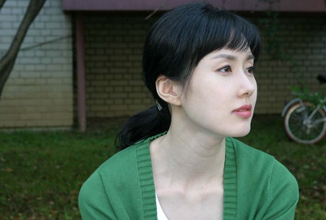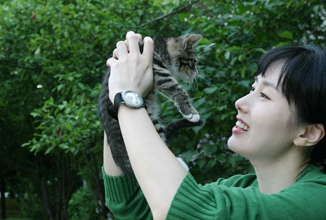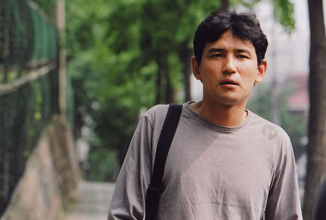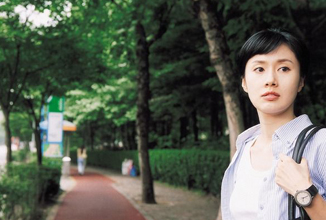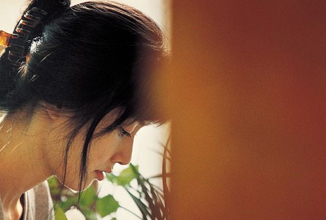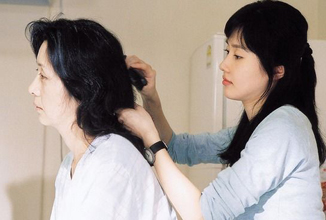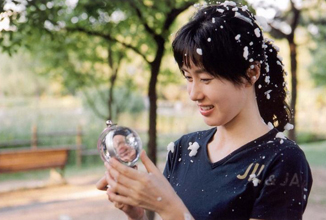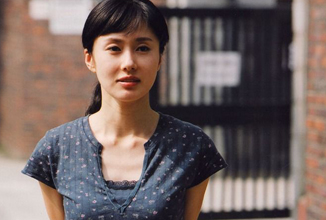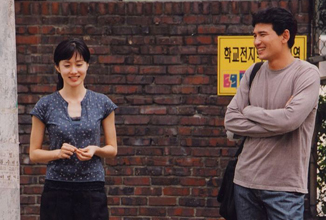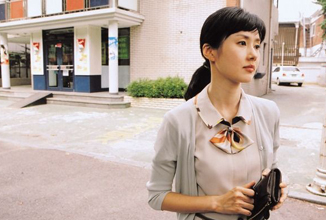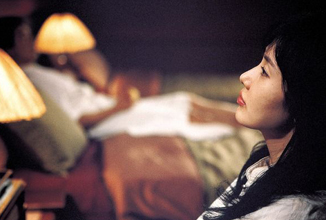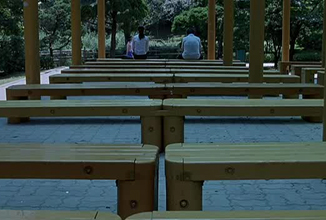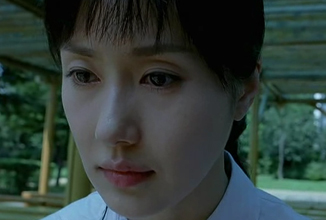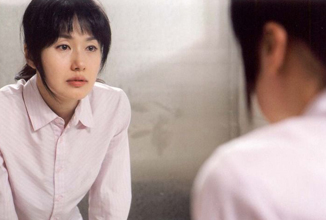
 |
||||||||||||||
Jeong-hae (Kim Ji-soo) is a twenty-something post office worker who leads a quiet, somewhat isolated, existence. With a rather sparse social life, mainly consisting of lunch (and a few after-work drinks, every now and then) with her co-workers, she spends most of her free time alone in her apartment tending to her plants, eating take-away kimchi and falling asleep on her sofa-bed, in front of the TV.
Jeong-hae's day-to-day life is outwardly unremarkable and, as such, she is not the type of character who would usually be the focus of a story, but every intimate moment we spend in her company reveals that there are numerous hidden layers to this lady who has shut herself off from the outside world out of necessity. She is the person whom everyone knows but no-one has really taken the time to get to know - the girl who is "quiet, but seems really nice" - and, as a result, her story becomes an insight into a world which only she has seen.
Jeong-hae's past is depicted in a series of flashbacks and these are beautifully (and deliberately) understated - often with no explanation as to who is shown or where the scene fits into the overall picture - but each is so exquisitely crafted that no explanation is ever necessary. Case in point: Jeong-hae finds an old book which has been used to set one of her plants on and, as the book is badly soiled, she orders a replacement at the local book store. When the new copy is delivered, she briefly flicks through the pages and we are shown the memories it brings to her mind in a small flashback scene. Lasting only seconds (and with no dialogue), it is nonetheless perfectly clear not only who the person in the scene is, but also the relationship of that character to Jeong-hae, as well as a complete picture of what subsequently happened to them. Different flashbacks appear throughout the length of the film (some relatively subdued, others utterly frenetic), with the movement between them and present day events so natural that each feels like a journey through Jeong-hae's mind. Together these "memories" add up to a complete, and comprehensive, back-story which allows Jeong-hae's present situation to take on a much greater emotional resonance than would otherwise have been possible and to elicit viewer empathy to an astounding degree.
I realise that I have been deliberately vague with regard to proceedings in This Charming Girl but, since almost everything that occurs also has a much larger part to play later in the film, I feel that is necessary.
Cinematically, This Charming Girl (the original Korean title translating as A woman, Jeong-hae) lies somewhere between art film and fly-on-the-wall documentary, but is stronger than either, thanks to director Lee Yoon-ki's ability to make the hand-held camera work intimate, almost to the point of intrusion, while never allowing the camera to be conspicuous. The result is akin to actually being in the scene, a voyeur on the edge of proceedings, with the unfolding drama feeling palpably real. In fact, the only time during the whole of This Charming Girl that I was consciously aware of sitting, watching a film, was in a scene featuring a drunken young man in a restaurant, and the subsequent motel scene. That's not to say that either of those segments is necessarily less accomplished (and both are required for a specific plot twist), but more that the rest of the film is so astoundingly well made that they stand out as (ever so slightly) weaker by comparison. The aforementioned hand-held camera work used throughout the film is never overdone and will really only be noticeable to those specifically looking for it, but its underlying effect results in a huge boost to the realism present.
Cast: This Charming Girl really is Kim Ji-soo's film. She appears in every scene (aside from a couple of small flashbacks) and her performance is exquisite. With the camera often being so close as to actually show the pores on her skin, she never allows it to appear that she is aware of its presence, and that in itself helps the audience to forget that it's there. Her acting is incredible throughout and, in a role where her facial expressions are almost as important as her dialogue, she never fails to make the character of Jeong-hae utterly real. I truly felt for Jeong-hae as the film progressed and a large part of that is thanks to Kim Ji-soo's pitch-perfect performance. Summary: This Charming Girl peels away the layers of an ordinary, everyday woman to reveal a character much more interesting and complex than she appears on the surface. An incredible film with astounding realism, This Charming Girl deftly shows that everyone has a story worth telling.
DVD
"Making of" featurette DVD
Details:
|
||||||||||||||
All images © Bear Entertainment, LJ Films, The Korean Film Council and Spectrum DVD Review © P. Quinn |
||||||||||||||
